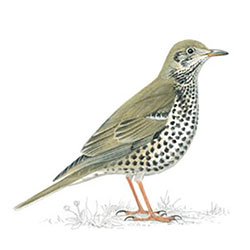My experiences of being a pupil in a secondary modern school in the 1950s. Extracts from my memoir No Way But Gentlenesse. A Memoir of How Kes, My Kestrel, Changed My Life.
Bloomsbury 2016.
One early Monday morning in September 1956, I lay in my bed in the dark listening to dad cleaning out the ashes and laying the coal fire for my mother to light when she got up. Moments later, I heard him close the door and leave the house to join other miners heading for the colliery. Later still came the mournful wail of a siren, the ‘pit buzzer’ as we called it, signalling to everyone in the village the start of the 6 am shift at the mine. Trying to calm the anxiety that had awoken me so early, I attempted to go back to sleep.
Later that morning, around 8am, I was on my way to begin my first day at Kirk Balk Boys’ Secondary Modern School on the edge of the village. The system in those days was for all eleven year olds to sit an exam, the eleven plus, the results of which dictated whether you were one of the few who went on to grammar school, or among the vast majority of kids who were sent to secondary modern school. I don’t remember taking that exam myself, but I do remember after the exam one lad had run around the playground shouting it was easy, his arms raised like aeroplane wings. He hadn’t done as well as he thought. He failed the exam and didn’t get into grammar school, but his dad owned the local bakery and he was sent to a private school in Sheffield.
The playground was full of new boys standing in lines, and standing in front of us that morning was my new headmaster, Ben, as the older boys called him. He was small and plump with a bald head and round gold-rimmed glasses. As he organised us into our new classes he frequently checked the time on a gold pocket watch which he took out of his waistcoat pocket. When the headmaster called out my name I could feel my heart thumping and the blood rising to my face, but when he said what form I’d been put in, my embarrassment was overridden by disappointment. I hesitated wondering whether I dare tell Ben in front of all those lads lined up in the playground, that he’d made a mistake and that I should be in 1A, the top ability stream.
“Get a move on boy”, Ben roared, and I quickly joined the line of lads who’d been told they were in 1B.
Later as we lined up outside the classroom a big man wearing a tweed jacket marched down the corridor. This was Idle Jack our new form teacher. He slapped the first boy in the line across the face. Then after he’d walked along and slapped each one of us across the face, he warned us that’s what we got for doing nothing wrong, then asked us to imagine the beating we’d get if we did do something wrong.
By the time I got home Idle Jack’s red finger marks had worn off my face and I didn’t tell my mother about the slap, but I did tell her of my disappointment at discovering I’d been put in 1B, rather than 1A. Next day the classroom door opened and in walked Ben.
“Where’s Hines?” the headmaster asked.
Blushing I raised my hand.
“Your mummy says you’re a clever little boy” he said in a whining voice while moving his head from side to side.
For a moment I didn’t know what he was talking about, then I realised that after I’d complained to mother about being put into 1B, she’d come up to school to try and persuade the headmaster to move me up into the A stream.
“Come with me” Ben ordered.
Humiliated and burning with shame I rose to my feet. Some of the lads in our class wore their older brothers’ tattered handed-down clothes and boots with steel studs in the soles. As I followed Ben out of the classroom under their sneering gaze I was uncomfortably aware of my tie, my neatly pressed short trousers, knee length stockings, and new Clark’s shoes. If only my mother had let me come to school in my jeans and sneakers.
I followed Ben to his office and I noticed three or four canes on the top shelf of the book-case as he irritably searched the shelves. Ben found a book, handed it to me, and told me to read from it. I stood there fumbling to find the first page.
“Any page will do”, he said.
I let the book fall open and looked at the page in front of me. The print was tiny, the lines close together. I started to read, but when I discovered that the passage I was reading contained words I’d never come across I faltered. Ben muttered and on the edge of my vision I could see him shaking his head. After I’d read three or four sentences he took the book away from me.
“1B? You’re lucky you’re not in 1C boy”, he said. “Now get back to your class.”
***
Smithy glanced around the classroom and called my name.
“Hines?”
“Yes, sir.”
He stared at me for a few moments then ticked off my name in the register. He called out another boy’s name, gazed at him for a while and then marked him present. After coming 2nd in the end of term exam in 1B, I’d been moved up into the A stream. Now aged fourteen, I was in my fourth year at secondary modern school and it was my first morning in 4A, where Smithy my new form teacher was trying to match the names in the register with the faces of the boys in his new class.
Smithy, who was in his 40s, had a small moustache and wore a tweed jacket with leather elbow patches. When he’d finished marking the register he got up and stood in front of the class. I thought he was going to welcome us and maybe give us an encouraging speech on how we needed to work hard in our final year at school, but instead he told us secondary modern school lads like us, who would leave at the end of the year aged fifteen, had an easy time at school. Much easier than his two daughters, he explained, who because they were at grammar school had to do homework and stay on at school to take GCE ‘O’ and ‘A’ level exams because they wanted to go to university and have professional careers.
Later that term Smithy chalked SOCIAL CLASS in capital letters on the blackboard. Underneath he wrote WORKING CLASS, before asking some of us what jobs our dads did as examples of the type of work done by the working class. Then, after he’d written MIDDLE CLASS on the blackboard Smithy asked for examples of middle class professions.
“Bank manager”, said one kid.
“Good”, said Smithy.
“Vicar”, said another lad.
“Yes”, said Smithy.
Further examples were called out – doctor, lawyer, accountant, – but Smithy wasn’t satisfied. He demanded more examples, then more still. Finally it dawned on us he was waiting for someone to call out teacher and acknowledge he belonged to a higher social class than us. Without a word or a glance at each other we somehow decided that we wouldn’t give Smithy what he sought, as the examples of middle class professions became more mischievous.
‘Scissor grinder,’ one lad shouted.
One morning, after I’d been messing about in class, the teacher sent me to the headmaster’s office for the cane. Ben reached up to a high bookshelf and brought down four canes, one straight and three with curved ends like walking sticks. He chose the straight cane.
With a couple of flicks of the cane Ben indicated I should raise my hand. Once I’d seen a lad who had been caned by Ben, rush out of school and do three laps around the playground holding his thumb in agony. Other lads offered the advice that to lessen the pain, you needed to make sure the skin on your hand was loose. Thumb tucked behind my first finger, skin nice and loose on my palm, I stood with my hand raised, steeling myself for the first blow.
Swish. Swish.
“Other hand.”
Swish. Swish.
Blowing on my hands, rubbing them together, blowing on them again, I tried to lessen the pain of the four strokes of the cane as I made my way back to class. Suddenly, a wild rough looking lad came sprinting down the corridor. He must have fled the classroom to escape a beating, because running behind him, red-faced, breathing heavily, and calling “Come back here you imbecile”, was Idle Jack the art teacher.
One morning I came within a second of fleeing Idle Jack’s classroom myself. I can’t remember what I’d done to cause him to call me out to the front of the class. Using the first finger and thumb on each hand he took hold of the hair above my ears and then he slowly lifted me up. The skin to either side of my head was pulled so tight that I was frightened it would tear. Idle Jack was a lot bigger than me because when he’d lifted me to my full height and I was standing on my tiptoes, my eyes level with his mouth, and I could feel his breath on my face. I was suddenly overcome with rage. My fingers squeezed into a fist, and for a moment I was going to smack Idle Jack in the nose.
But I didn’t. Idle Jack, still holding the hair at the side of my head between his fingers and thumbs, let me down on to the soles of my shoes, and finished off my punishment by ordering me to bend over, then using his full power hit me at least six times across the backside with one of those large blackboard T- squares.
“Now get back to your place, you cretin, you imbecile,” he roared.
In one English lesson I looked up the dictionary definitions of Idle Jack’s two favourite insults, cretin: ‘a physically deformed and mentally retarded person’; imbecile: ‘a person of abnormally weak intellect’. Idle Jack wasn’t the only one to insult us, other teachers would call us halfwits, morons, numbskulls, retarded. Even well behaved lads couldn’t escape put downs, as a teacher, while smirking or winking at other staff, would say “I’m looking for an intelligent boy to do a job for me”, emphasising intelligent. Were the grammar school kids constantly told they were stupid? If they were maybe they’d have the confidence to know they weren’t, but for me, a lad who’d racked his brain over his eleven plus exam to no avail, the insults struck home.
Idle Jack left while I was in my last year at school and I thought I’d seen the last of him. Then one evening when I switched on the television there he was talking about his new venture on the regional news. I thought he might have become an artist because his figurative pencil drawings were brilliant but instead he’d set up a business making fibreglass car bodies. When asked why he’d left teaching Idle Jack didn’t hold back, telling the interviewer that the pupils he’d taught in our secondary modern school were cretins and imbeciles.

